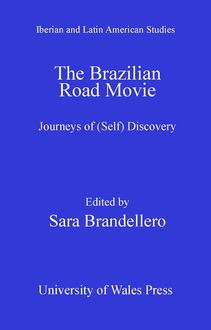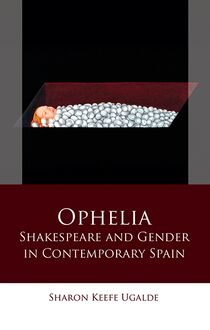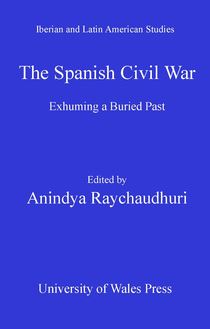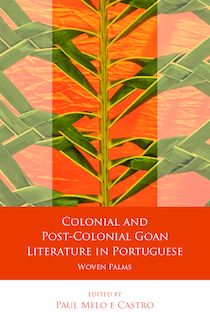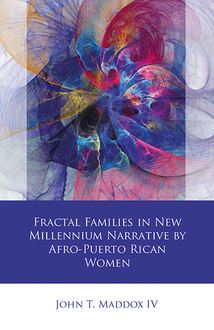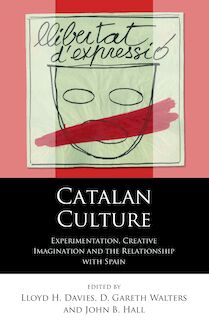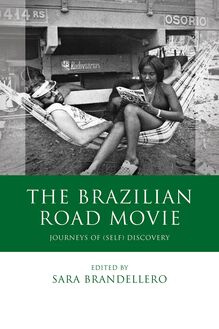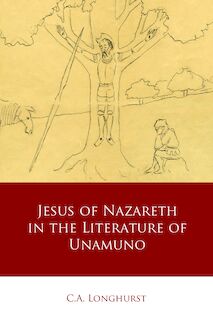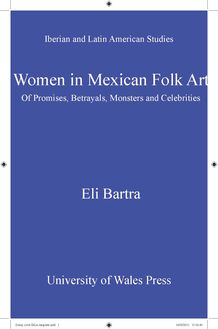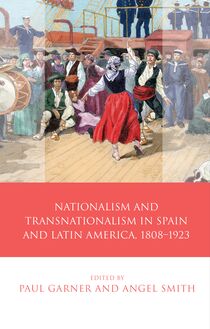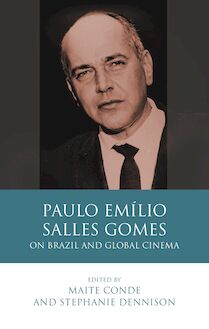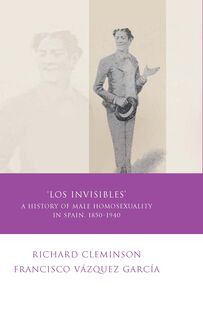The Tlatelolco Massacre, Mexico 1968, and the Emotional Triangle of Anger, Grief and Shame , livre ebook
137
pages
English
Ebooks
2018
Vous pourrez modifier la taille du texte de cet ouvrage
Obtenez un accès à la bibliothèque pour le consulter en ligne En savoir plus
Découvre YouScribe en t'inscrivant gratuitement
Découvre YouScribe en t'inscrivant gratuitement
137
pages
English
Ebooks
2018
Vous pourrez modifier la taille du texte de cet ouvrage
Obtenez un accès à la bibliothèque pour le consulter en ligne En savoir plus
Publié par
Date de parution
06 août 2018
Nombre de lectures
0
EAN13
9781786832825
Langue
English
In the aftermath of major violent events that affect many, we seek to know the ‘truth’ of what happened. Whatever ‘truth’ emerges relies heavily on the extent to which any text about a given event can stir our emotions – whether such texts are official sources or the ‘voice of the people’, we are more inclined to believe them if their words make us feel angry, sad or ashamed. If they fail to stir emotion, however, we will often discount them even when the reported information is the same. Victoria Carpenter analyses texts by the Mexican government, media and populace published after the Tlatelolco massacre of 2 October 1968, demonstrating how there is no strict division between their accounts of what happened and that, in fact, different sides in the conflict used similar and sometimes the same images and language to rouse emotions in the reader.
Acknowledgements
Introduction: ‘2 October Is Not Forgotten’
‘And All This Happened to Us’: Events of the Night of 2 October in the State and Public Discourses
Affect and Reason: Analysis of the Massacre in the State and Public Discourses
‘Unfortunate and Sad Fate’: Emotional Reaction to the Massacre in the State and Public Discourses
Conclusion: The Symbolic Value of ‘2 October’ Is Not Forgotten
Bibliography
List of Tables
Table 1. Points of agreement, contention and grey areas in the state discourse (Ch. 2)
Table 2. Points of agreement, contention and grey areas in the public discourse. (Ch. 2)
Table 3. Archive components and associated emotions. (Ch. 5)
Publié par
Date de parution
06 août 2018
Nombre de lectures
0
EAN13
9781786832825
Langue
English
IBERIAN AND LATIN AMERICAN STUDIES
The Tlatelolco Massacre, Mexico 1968, and the Emotional Triangle of Anger, Grief and Shame
Series Editors
Professor David George (Swansea University)
Professor Paul Garner (University of Leeds)
Editorial Board
David Frier (University of Leeds)
Lisa Shaw (University of Liverpool)
Gareth Walters (Swansea University)
Rob Stone (University of Birmingham)
David Gies (University of Virginia)
Catherine Davies (University of London)
Richard Cleminson (University of Leeds)
Duncan Wheeler (University of Leeds)
Jo Labanyi (New York University)
Roger Bartra (Universidad Nacional Autónoma de México)
Other titles in the series
The Darkening Nation: Race, Neoliberalism and Crisis in Argentina
Ignacio Aguiló
Catalan Culture: Experimentation, creative imagination and the relationship with Spain
Lloyd Hughes Davies, J. B. Hall and D. Gareth Walters
Catalan Cartoons: A Cultural and Political History
Rhiannon McGlade
Revolutionaries, Rebels and Robbers: The Golden Age of Banditry in Mexico, Latin America and the Chicano American southwest, 1850–1950
Pascale Baker
Teresa Margolles and the Aesthetics of Death
Julia Banwell
Galicia, A Sentimental Nation
Helena Miguelez-Carballeira
The Brazilian Road Movie
Sara Brandellero
The Spanish Civil War
Anindya Raychaudhuri
IBERIAN AND LATIN AMERICAN STUDIES
The Tlatelolco Massacre, Mexico 1968
and the Emotional Triangle of Anger, Grief and Shame: Discourses of Truth(s)
VICTORIA CARPENTER
© Victoria Carpenter, 2018
All rights reserved. No part of this book may be reproduced in any material form (including photocopying or storing it in any medium by electronic means and whether or not transiently or incidentally to some other use of this publication) without the written permission of the copyright owner. Applications for the copyright owner’s written permission to reproduce any part of this publication should be addressed to the University of Wales Press, 10 Columbus Walk, Brigantine Place, Cardiff CF10 4UP.
www.uwp.co.uk
British Library CIP
A catalogue record for this book is available from the British Library.
ISBN 978-1-78683-280-1
e-ISBN 978-1-78683-282-5
The right of Victoria Carpenter to be identified as author of this work has been asserted in accordance with sections 77 and 79 of the Copyright, Designs and Patents Act 1988.
The publisher has no responsibility for the persistence or accuracy of URLs for any external or third-party internet websites referred to in this book, and does not guarantee that any content on such websites is, or will remain, accurate or appropriate.
Cover image: Detention of students at Tlatelolco, 2 October 1968. By permission, Rex Features, Shutterstock.
To Michael and Samantha, with love and gratitude
Contents
List of Tables
Series Editors’ Foreword
Acknowledgements
1 Introduction: ‘2 October Is Not Forgotten’
2 ‘ And All This Happened to Us’: Events of the Night of 2 October in the State and Public Discourses
3 Affect and Reason: Analysis of the Massacre in the State and Public Discourses
4 ‘ Unfortunate and Sad Fate’: Emotional Reaction to the Massacre in the State and Public Discourses
5 Conclusion: The Symbolic Value of ‘2 October Is Not Forgotten’
Notes
Bibliography
List of Tables
Table 2.1: Points of agreement, contention and grey areas in the state discourse
Table 2.2: Points of agreement, contention and grey areas in the public discourse
Table 5.1: Archive components and associated emotions
Series Editors’ Foreword
Over recent decades the traditional ‘languages and literatures’ model in Spanish departments in universities in the United Kingdom has been superseded by a contextual, interdisciplinary and ‘area studies’ approach to the study of the culture, history, society and politics of the Hispanic and Lusophone worlds – categories that extend far beyond the confines of the Iberian Peninsula, not only in Latin America but also to Spanish-speaking and Lusophone Africa.
In response to these dynamic trends in research priorities and curriculum development, this series is designed to present both disciplinary and interdisciplinary research within the general field of Iberian and Latin American Studies, particularly studies that explore all aspects of Cultural Production (inter alia literature, film, music, dance, sport) in Spanish, Portuguese, Basque, Catalan, Galician and indigenous languages of Latin America. The series also aims to publish research in the History and Politics of the Hispanic and Lusophone worlds, at the level of both the region and the nation-state, as well as on Cultural Studies that explore the shifting terrains of gender, sexual, racial and postcolonial identities in those same regions.
Acknowledgements
I would like to thank the University of Wales Press for taking up this project and making it successful. Sarah Lewis’s helpful advice and quick responses to my (sometimes frantic) emails helped this project come to fruition in time for the fiftieth anniversary of the massacre.
When this study was first conceived, Jon Beasley-Murray’s work on posthegemony inspired me to follow a different path in structuring my book. A big thank you also goes to my students on the Advanced Spanish pathway (University of Derby, 2005–8), who were the sounding board for the initial glimpses of this study back in 2007; my thanks go to Jasmine, Dominic, Alicija, Troy, Danielle, Charles and others for their enthusiastic participation in the initial discussions which led to an unexpected turn in the course the study took. My PhD students – Vanessa and Lakhbir – bore the brunt of my theoretical ruminations and, hopefully, benefited from it as much as this project did (or more). My colleagues who shared my interest in all things hegemonic and posthegemonic – Jill Hanson and Dave Lees – were the source of new perspectives outside the familiar Latin American context.
I would also like to thank York St John University for supporting this project when I joined them in 2014. My fellow academics and research students have heard several presentations on various aspects of the project and shared my excitement (and occasional frustration) at writing retreats. Particular thanks go to Mandy Asghar, who urged me to continue and celebrated every success, no matter how small, along with me. Scott Cole, Mark Dransfield, Charlotte Haines-Lyon, Lorna Hamilton, Cath Heinemeyer, Liesl King, Becky Muradás-Taylor and others attending day and over-night writing retreats inspired me to keep going.
I am grateful to my fellow Latin Americanists Peter Beardsell, Mel Boland, Céire Broderick, Chris Harris, Stephen Hart, Adam Sharman, Phil Swanson, Amit Thakkar and others, who asked unexpected questions at conferences and in personal meetings and welcomed equally unexpected answers. My friends in the Association of Hispanists of Great Britain and Ireland and the Latin American Literary Studies Association have watched the project take shape over many conference papers and discussions that followed.
Raphael Ingelbien has witnessed this project from conception to publication, offering light-hearted support and an occasional shoulder along the way. My mother Svetlana’s encouragement kept me focused on the task at hand.
My deepest gratitude is to my family for putting up with early morning departures for libraries and late-night rants about the results of these trips, and for encouraging me even when nothing seemed to go my way. My husband Michael’s wisdom and unorthodox perspective inspired me to think outside the box; he also helped me get through the final stages of the project – he stood by me and reassured me whenever I started to flag. My daughter Samantha’s belief in me kept me determined to see the project through. Samantha is also credited with helping put the Bibliography together – we worked hard and had some fun along the way. Without my family’s love and support this book would not have seen the light of day.
1
Introduction: ‘2 October Is Not Forgotten’
It was a Monday like any other Monday. I was in my office, getting ready to teach an Advanced Spanish class to my final-year students. The topic was ‘Absent Texts and Political Turmoil’ and the case study was a massacre of a student demonstration in Mexico City, known as the Tlatelolco massacre, on 2 October 1968. Having gathered excerpts from Elena Poniatowska’s La noche de Tlatelolco , poems by Rosario Castellanos, Isabel Fraire and Jaime Sabines about the horror of the massacre and the apathy afterwards, and a couple of newspaper articles with statements from the government officials blaming the students and their parents for what had happened, I was putting together a presentation to start the lesson. A photograph of a student held down by smiling soldiers; a layout of the Plaza of the Three Cultures; a pile of shoes left behind by the demonstrators running for their lives – all the necessary attributes to describe a nightmarish evening in a quiet residential neighbourhood. To round the presentation off, I searched for a high-resolution image of the monument erected in the plaza by the families of the victims of the massacre on 2 October 1993, twenty-five years after that night.
The image stood out against the dark blue background of the PowerPoint slide. At the bottom of the monument, lines from Rosario Castellanos’s poem ‘Memorial de Tlatelolco’ reminded the audience that the newspapers and the government tried to erase the event from the collective memory, denying it had ever happened and going about their business as usual the next day. There were names chiselled out in granite. Men and women, young and old, listed in no particular order. I wrote the names down and, as any meticulous researcher would do when there is a bit of free time available, plotted a graph of ages and noted the gender balance. And I counted the names – there were twenty. I tried to remember where I saw the figure of
